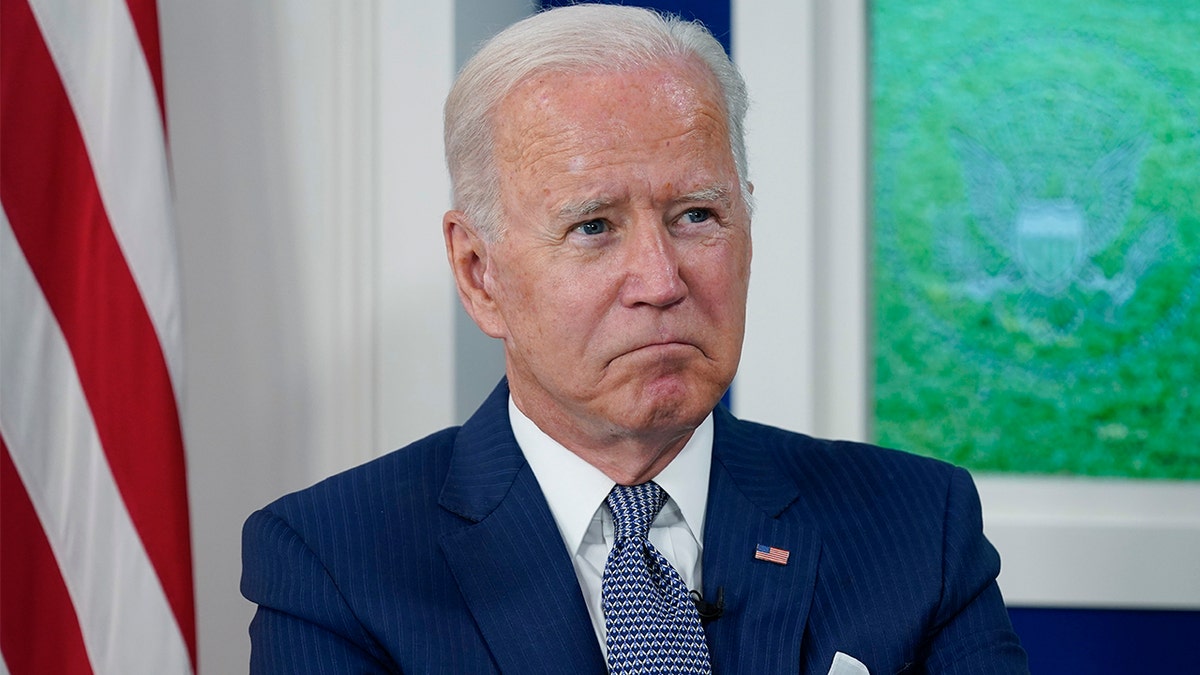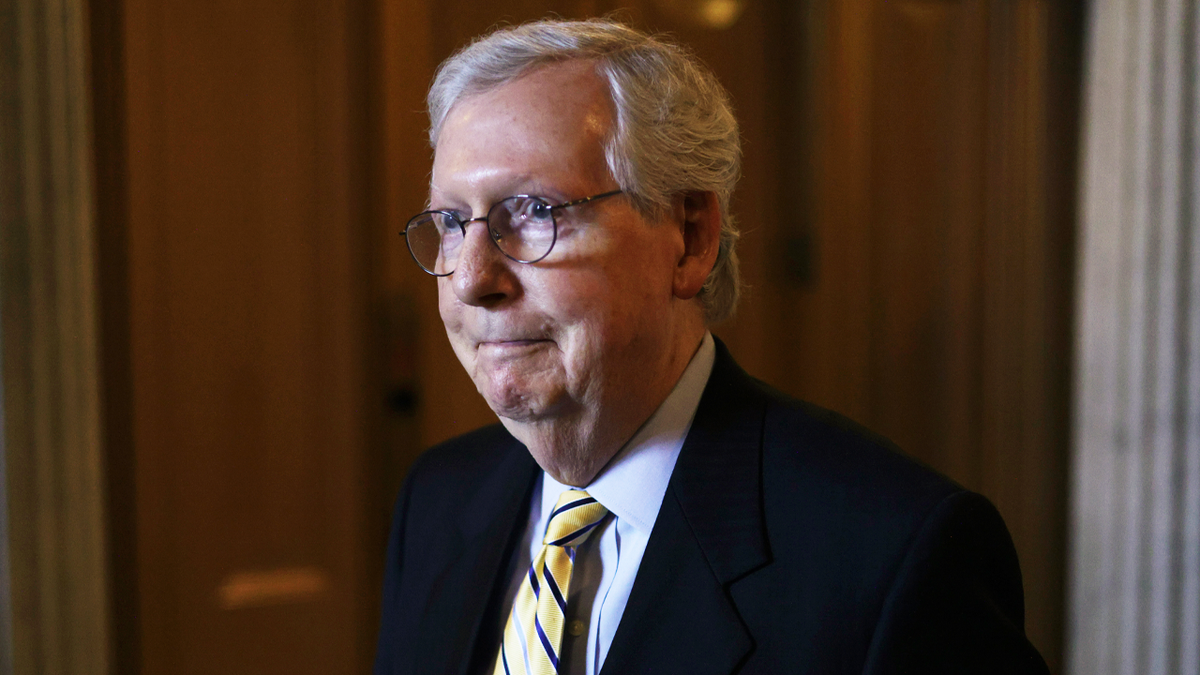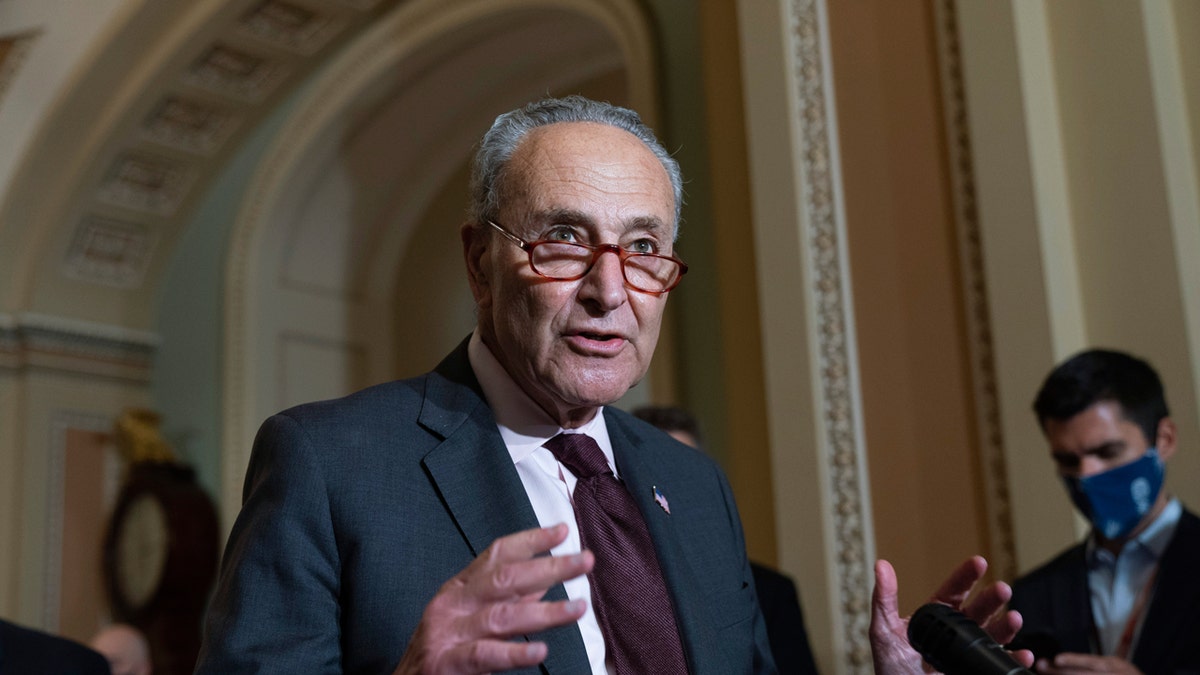Proposed voting bill sparks debate over changes to election laws
Political analyst Melik Abdul and Fox News contributor Sara Carter discuss the Democrats' proposed bill that is ‘dividing’ the nation.
Senate Republicans blocked debate on sweeping federal voting rights legislation backed by President Biden on Wednesday, in a move likely to renew calls among some Democratic leaders to alter filibuster rules.
The Senate voted 49-51 on whether to take up the "Freedom to Vote Act," falling far short of the 60 votes required to overcome a GOP filibuster. Senate Majority Leader Chuck Schumer, D-NY, switched his vote to a "nay," in a procedural move that will allow him to submit the legislation for a re-vote.
The result marked the third time this year that Republicans have blocked the legislation, which Democrats have supported in response to the passage of election security overhauls in GOP-led states.
President Biden slammed Republicans for blocking consideration of the voting rights legislation in a scathing statement, arguing the right to vote is "under unrelenting assault by proponents of the Big Lie and Republican Governors, Secretaries of State, Attorneys-General, and state legislatures across the nation."
"Senate Democrats have worked hard to ensure this bill includes traditionally bipartisan provisions," Biden said. "But Senate Republicans are likely to block even debate on the bill, as they have before on previous voting rights bills. It’s unconscionable."

President Joe Biden attends a virtual COVID-19 summit during the 76th Session of the United Nations General Assembly, in the South Court Auditorium on the White House campus, Wednesday, Sept. 22, 2021, in Washington. (AP Photo/Evan Vucci) (AP Photo/Evan Vucci)
BIDEN ACCUSES GOP OF BACKING A ‘JIM CROW ERA IN THE 21ST CENTURY’
Republicans have argued the legislation would infringe on the right of states to dictate their own election laws and would unduly favor the Democratic party. The latest version of the voting rights legislation would establish a federal election framework, create rules aimed at preventing partisan redistricting, and overhaul the campaign finance system.
The bill also included provisions favored by moderate Democratic Sen. Joe Manchin of West Virginia, who joined Republicans in voicing concern about previous versions of the bill. The legislation includes a Manchin-backed effort to limit voter ID requirements.
Senate Minority Leader Mitch McConnell, R-Ky., decried the bill as a federal "election takeover scheme."

WASHINGTON, DC - JUNE 22: U.S. Senate Minority Leader Sen. Mitch McConnell (R-KY) walks in a hallway after a vote at the Senate chamber at the U.S. Capitol June 22, 2021 in Washington, DC. The Senate is scheduled to vote on a procedural vote of the For the People Act this evening. (Photo by Alex Wong/Getty Images) (Alex Wong/Getty Images)
Democrats have vowed to enact a federal voting rights overhaul regardless of Republican opposition.
Progressive Democrats have repeatedly called for the filibuster to be changed or abolished entirely in response to Republican efforts to block key elements of Biden’s legislative agenda. McConnell has warned any effort to abolish the filibuster would result in complete gridlock in the Senate.
Moderate Democrats, including Manchin and Sen. Kyrsten Sinema of Arizona, have resisted calls to abolish the filibuster. Biden has also spoken out against the idea in recent months.

Senate Majority Leader Chuck Schumer of N.Y., speaks to the media after a Democratic policy luncheon, Tuesday, Oct. 19, 2021, on Capitol Hill in Washington. (AP Photo/Jacquelyn Martin)
CLICK HERE TO GET THE FOX NEWS APP
But there are signs that some Democrats could alter their stance if priority legislation continues to fail. Sen. Angus King of Maine, an independent who caucuses with the Democrats, recently indicated he was open to changes to the filibuster.
"I’ve concluded that democracy itself is more important than any Senate rule," King said.
The Associated Press contributed to this report.













































